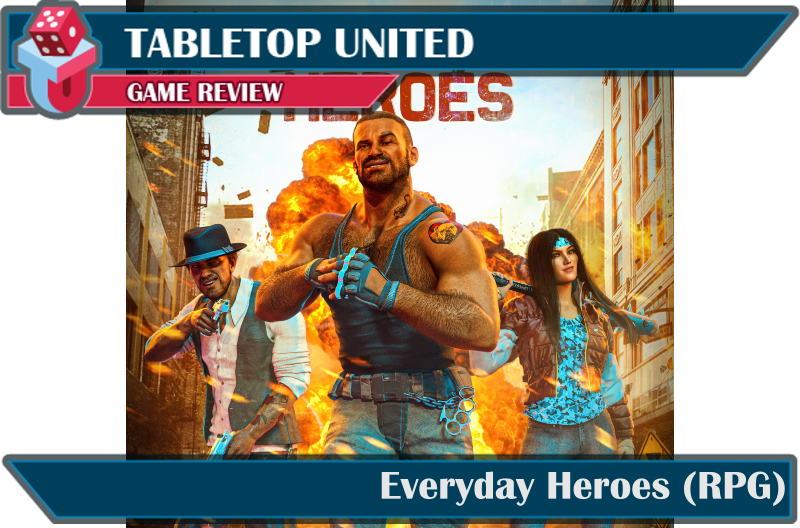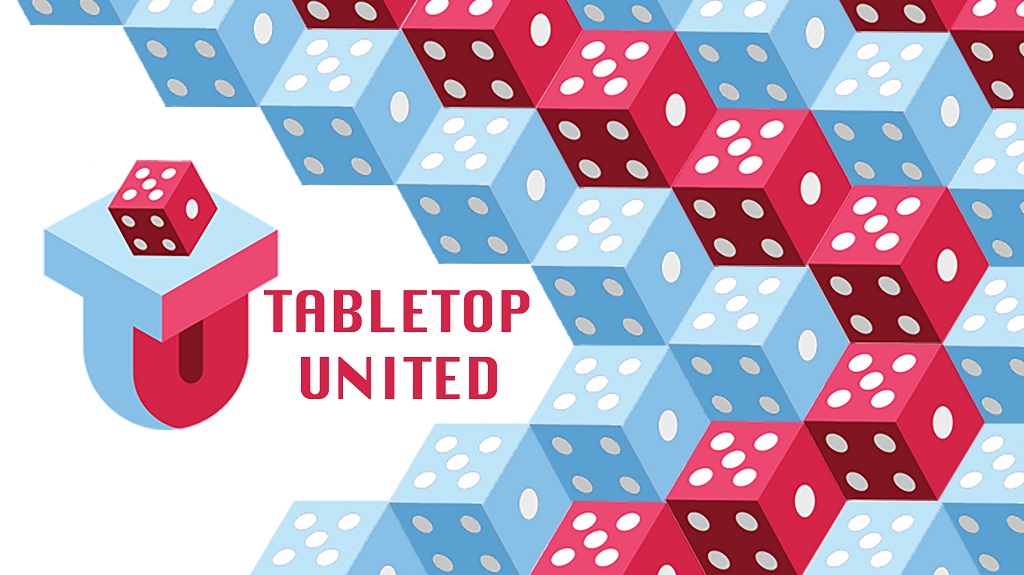
Everyday Heroes
Designer: Sigfried Trent, Chris “Goober Ramsley, D. Todd Scott, Jeff Grubb
Artist: Ned Chaushev, Wilson Andres Carreno Guavara, Unes Munoz Diaz, Lorenzo de Sanctis, Abdelmounim Bouzzaoui, Jozsef Vajko
Publisher: Evil Genius Productions, LLC
Year Published: 2022
No. of Players: 2+
Ages: 12+
Playing Time: Varies
Main mechanic / Theme: 5e Moderns, RPG / Story creation through the lens of a camera
Today’s world needs heroes, you can play the part.
Find more info on RPGGeek.com / Kickstarter
Everyday Heroes is a tabletop roleplaying game built on the mechanics of the Open Gaming License for 5e. The developers have updated D20 Moderns originally published just after we entered the 21st century with the changes that have taken place in the world around us and in the realm of tabletop gaming.
I was given a copy of the Core Rulebook for Everyday Heroes by the publisher, Evil Genius Productions, LLC, for review purposes. I also received two adventure settings that I will be reviewing separately to give them the justice they deserve.

Setting
There is no specific setting for Everyday Heroes, and that is one main reason I will discuss the other two works on their own. Here is a quick teaser though to give you some ideas of where you can take your games. One setting builds out the alternate timeline used in the movie Escape From New York and the other is the world of The Crow.
The general premise is to have settings where the characters are not flush in magic in a modern setting. You can still add magical and supernatural elements to your story (think of the second setting mentioned above) and use this base structure for historical settings. The introduction in the book I think provides a great statement of what you can use this system for:
“Picture the world outside your window. Then imagine taking part in your favorite movie, or novel or streaming series set in the modern era, complete with fantastic action, danger, car chases, and explosions.”
This is designed for you to create and play the heroes from the stories we all enjoy from our favorite forms of media.

Characters
If you are familiar with 5e, you can jump right in and start building your heroes.
Everyday Heroes uses a six-statistics structure of score of 3-18. Each hero also has a background, archetype, class, and profession. These can alter the initial scores of the character and provide additional aspects to the hero you are designing.
The six archetypes are based on the primary abilities. The book provides twenty classes that are divided among the archetypes. There is a good selection of backgrounds presented along with rules for creating a customized one if you want something different. That also applies to the number of professions.
There are additional sections that are designed to help to round out the personality of the hero. This covers such thigs as beliefs, flaws, virtues, and motivations.
Everyday Heroes also uses Skills and Feats to set your hero apart from others.
If you’re not familiar with this style of system, it may seem a little overwhelming. However, the process is well designed in the Core Rulebook and can be easily followed. After doing character creation a couple of times you should have no issues in creating new heroes.
Character advancement is designed to be done when characters reach milestones in the campaign adventures, or in their careers. The design of the game maximizes characters at level ten, because at that level your hero would be considered one of the elite few in their field.
Characters are covered in roughly the first 200 pages of the Core Rulebook. The next 60 pages covers the mechanics of how to play Everyday Heroes. The final 200 pages are for the gamemaster for running the adventures for the heroes.
Mechanics
Everyone
Again, if you are familiar with 5e, you’re pretty much ready to go. If you have played a d20 system, there are only a few things to note, and they are not hard to work into what you are already doing in your game.
There are some additional rules for those situations that are particular to our modern world like car chases and vehicle combat.
Game Masters
The section for game masters (GMs) has more details about what is taking place behind the camera of the story.
There is advice on how to run a tabletop roleplaying game for those who are new or would like to gain those little tips these designers have come up with.
For those with more experience and want to create their own settings and story arcs, there are some good guidelines for doing so within the realm of Everyday Heroes. This includes appropriate levels and creating and organizing encounters with friends and foes.
There are about 100 pages of non-player characters and other denizens for your party to interact with. To give you a good jump on what you would like to play there are also historic peoples, science fiction encounters and supernatural beings.
There is also an appendix for quick reference to the changes Everyday Heroes has made from the 5e ruleset to make your experience in this modern adventuring more enjoyable.

Overall
I have played and GMed using D20 Moderns and found Everyday Heroes a well done update to that ruleset for the modern edition of 5e, and more importantly to the changes that have taken place around us over the last 20 years.
I like how this system takes some of the accounting away, so you don’t have to track how much your character is earning and where the dollars are spent. This is so true in modern society where so much more is available depending on your wealth and disposable income.
I also like the simplification of gear and weapons. We have many variations of items that look different, and perform different, but are of the same basic model of what is needed in a game (i.e., a sports car). The simplification allows for easier play that does not impact the mechanics of the storyline, and the variation can be added in the description for the embellishment of the story.
I reviewed the PDF version of Everyday Heroes. The layout of the book made it easy to find information and work through the creation of a character. The charts were helpful. And the art was supportive and representative of what is being discussed. There is also good representation to show inclusion of a large variety of peoples.
Music is also part of the experience. There is a tag in the book you can use to get a playlist for your game.
I recommend Everyday Heroes for players, GMs, and groups who are interested in game settings not based primarily in a fantasy setting.
You can find Everyday Heroes at DriveThru RPG or the Evil Genius website.
You can also find more information from Evil Genius Games on Twitter and Facebook.

About the Author
Daniel Yocom does geeky things at night because their day job wouldn't let him. This dates back to the 1960s through games, books, movies, and stranger things better shared in small groups. They’ve written hundreds of articles about these topics for their own blog, other websites, and magazines after extensive research along with short stories. Their research includes attending conventions, sharing on panels and presentations, and road-tripping with their wife. Join them at guildmastergaming.com.

